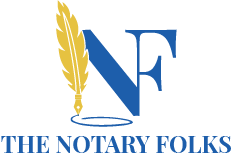
Estate planning is one of the most important steps you can take to protect your loved ones and ensure that your wishes are honored after your passing. While many people think estate planning starts and ends with a will, there’s actually much more to it! For example, did you know that having your will properly notarized is essential to ensure its validity? Learn more about this key step in our blog post “Why Notarizing a Will is Essential for Estate Planning.” A comprehensive estate plan involves several other vital documents as well. Understanding these documents can help you create a strategy that suits your specific needs and provides peace of mind for both you and your family. Please take your time to review these top five estate planning documents below.
5 Most Important Estate Planning Documents
- Last Will and Testament
- Durable Power of Attorney (POA)
- Health Care Proxy / Medical Power of Attorney
- Living Will / Advance Directive
- Revocable Living Trust
1. Last Will and Testament
The Last Will and Testament serve as the foundation of any estate plan. It outlines how your assets will be distributed after your death, specifies guardians for minor children, and appoints an executor to manage your estate.
Key Points
- Distribution of Assets: Specifies who will inherit your property and how it will be divided.
- Guardianship: Allows you to designate a guardian for your minor children.
- Executor: Appoints a trusted individual to manage your estate and ensure your wishes are carried out.
Importance
Without a will, your estate will be distributed according to state intestacy laws, which may not reflect your intentions. This could lead to family disputes and assets going to unintended heirs.
2. Durable Power of Attorney (POA)
A Durable Power of Attorney (POA) allows you to appoint someone to handle your financial and legal affairs if you become incapacitated. The “durable” aspect ensures the document remains in effect even if you’re unable to make decisions yourself.
Key Points
- Financial Authority: Grants a trusted individual the ability to manage your financial matters, such as paying bills or overseeing investments.
- Incapacity Planning: Ensures your affairs are managed smoothly if you become unable to make decisions due to illness or injury.
Importance
Without a durable POA, your loved ones may face a lengthy legal process to gain access to your accounts or manage your affairs during critical moments.
3. Health Care Proxy / Medical Power of Attorney
A Health Care Proxy or Medical Power of Attorney allows you to appoint someone to make medical decisions on your behalf if you are unable to communicate your preferences. This document ensures that your healthcare wishes are respected, whether it’s for routine care or end-of-life decisions.
Key Points
- Medical Decisions: Grants someone authority to make decisions about your treatment.
- End-of-Life Care: Specifies your preferences regarding life-sustaining treatments, such as ventilators or feeding tubes.
Importance
In times of medical emergency, having a designated individual to advocate for your healthcare needs can prevent confusion or family conflicts, ensuring your wishes are followed.
4. Living Will / Advance Directive
A Living Will, often part of an advance directive, outlines your preferences for medical treatment if you’re terminally ill or permanently unconscious. It provides guidance to healthcare professionals and loved ones about the life-sustaining treatments you want or don’t want.
Key Points
- Medical Preferences: Clearly communicates your choices regarding treatments such as resuscitation or mechanical ventilation.
- End-of-Life Decisions: Avoids putting your loved ones in a position to make difficult decisions by providing clear instructions for your care.
Importance
A living will helps alleviate the emotional burden on your family during stressful times by providing clarity and reducing uncertainty about your healthcare preferences.
5. Revocable Living Trust
A Revocable Living Trust allows you to transfer ownership of your assets into a trust during your lifetime. Unlike a will, assets in a trust bypass probate, which can be a time-consuming and expensive legal process. You can modify or revoke the trust as your circumstances change, and after your death, the assets are distributed according to your instructions.
Key Points
- Avoids Probate: Ensures a smoother, quicker transfer of assets without public court proceedings.
- Lifetime Control: You can make changes to the trust and continue managing your assets while you’re alive.
- Privacy: Keeps your estate matters private, as trusts aren’t subject to public probate records.
Importance
A revocable living trust can save time, money, and stress for your heirs. It’s especially beneficial for individuals with significant assets or complex family situations, offering a more efficient way to manage and distribute wealth.
FAQs
1. Do I need all five estate planning documents, or can I just have a will?
While a Last Will and Testament is a fundamental part of an estate plan, it may not be enough to cover all aspects of your wishes and needs. Documents like a Durable Power of Attorney and Health Care Proxy ensure that your financial and medical decisions are managed if you’re incapacitated. A Living Will specifies your end-of-life preferences, and a Revocable Living Trust can help avoid probate. Together, these documents create a comprehensive plan.
2. What happens if I don’t have a Last Will and Testament?
If you don’t have a will, your assets will be distributed according to your state’s intestacy laws. This could mean that your property may not go to the people you intended. Additionally, the court will appoint a guardian for any minor children, which may not align with your wishes.
3. Can I change my estate planning documents after they’re created?
Yes, most estate planning documents can be updated or modified as your circumstances change. For example, you can revise your Last Will and Testament or Revocable Living Trust to reflect new assets or changes in family dynamics. It’s essential to review your plan regularly to ensure it continues to align with your intentions.
4. What is the difference between a Living Will and a Health Care Proxy?
A Living Will outlines your preferences for medical treatment, particularly regarding life-sustaining measures if you are unable to make decisions. A Health Care Proxy (or Medical Power of Attorney) appoints someone to make medical decisions on your behalf if you are incapacitated. Both documents work together to ensure your healthcare wishes are respected.
Conclusion
Estate planning is about more than just writing a will—it’s about creating a comprehensive plan that ensures your wishes are respected, your loved ones are cared for, and your assets are distributed efficiently. The Last Will and Testament, Durable Power of Attorney, Health Care Proxy, Living Will, and Revocable Living Trust are the key estate planning documents that form the backbone of a solid estate plan.
📌Don’t wait until it’s too late
Speak with an estate planning attorney today to create a plan tailored to your needs. Proper planning not only safeguards your assets but also provides peace of mind, knowing your family won’t face unnecessary stress or uncertainty.
Protect your legacy and ensure your loved ones are well cared for, no matter what the future holds.
👉Contact us today or schedule an appointment below with our expert for a guide on how to choose a professional Estate Planning Attorney.


